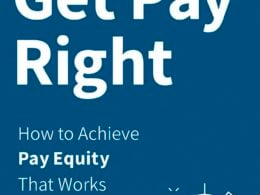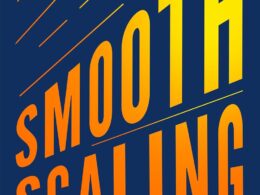From startup to growth to pivoting in a changing marketplace, “Live Free or DIY” reveals how small business owners in every industry encounter the same roadblocks—and how the solutions are simpler than you think. Whether wrestling with strategies for attracting customers, growing revenue, dealing with red tape, or getting the most out of every twenty-four hours, “Live Free or DIY” is an ultra-practical guide that will free small business owners from the do-it-yourself trap, and unleash the kind of explosive growth you’ve only dreamed about.
The excerpt from “Live Free or DIY” below was selected exclusively for StartupNation readers, and introduces the concept of “The Startup Capital You Didn’t Know You Had”:
Business owners across industries undervalue their time for a very simple reason: They’re not thinking about what they’re giving up. For every hour they spend fighting with QuickBooks, and trying to fix their own website, and plowing through a mountain of paperwork, and doing everything but the business itself, there’s a cost. The cost is what they could have done instead. Here’s what I mean by that:
I’m guessing you have a wish list for your business. Maybe on that wish list there’s an idea for a new product. Maybe there’s an idea for how to make an existing product even better. Or maybe there’s a plan for how to reach a whole new market. These sorts of ideas might come to you all the time; you’re a creative person, after all, since entrepreneurs are creative by their very nature. But now that you’re drowning in the daily humdrum tasks of just keeping your business afloat, your ideas get relegated to a wish list—or, more accurately, a when-I-finally-have-time list. And at the rate you’re going, you can’t imagine ever having time to get to those ideas, even though you know they have the potential to grow your business in new and exciting ways.
That’s the cost of doing your own bookkeeping. That’s the cost of managing HR and payroll on your own, and sitting on hold with the cable company when Internet service goes down. For every hour you spend on those boring tasks, you’re giving up an hour in which you could have made your business better. That’s why it’s time—not money—that ultimately drives your bottom line.
Your business will be wildly successful to the extent you’re using your time to become the very best in your niche, whether that niche is container shipping or practicing a specific type of law or serving pizzas in a small town. To the extent that you’re making your business the very best it can possibly be in its unique niche, you’re carving out a powerful place in the world—but to the extent you’re not, you’re not.
And that’s why transitioning your business from one that’s bogged down in operations to one that’s hyper-focused on the business itself means fundamentally changing the way you think about your time. Every hour you spend on QuickBooks is an hour you didn’t make your business greater, and that’s a cost you can’t afford. The key is to transform the way you use your time, from DIYing to focusing on what you do best and how to do it even better.
This might surprise you, but changing your mindset in this way requires putting a dollar value on your time. Why? Because that dollar value will act as a guide in helping you delegate the tasks that are inefficient for you to do yourself. In the next chapter we’ll walk through the process of determining how much an hour of your time is worth. For now, though, we’ll simply acknowledge that your time has a dollar value—and it’s probably higher than you think.
To illustrate what I mean, think for a second about a Silicon Valley entrepreneur who’s lucky enough to have someone invest in her startup. Let’s say the investor ponies up $5 million for the entrepreneur’s idea. The entrepreneur then has to devise the smartest way to use that $5 million to build the business from scratch.
You might think that scenario is nothing like your own, since you’re bootstrapping your business by patching together savings, running on a scant budget, and DIYing everything you can. But no business gets off the ground without startup capital. It’s just that in the case of the Silicon Valley entrepreneur, there was an outside investor, while you’re self-funding. You don’t have $5 million to dedicate to self-funding, of course, but you are using something else of value: your time.
Remember, you gave up your old salary in order to work for yourself. And every day that goes by in which you decide not to go back into the labor force—either part-time or full-time—you continue to double-down on that decision. Well, the salary you’re giving up is like that $5 million of investment capital. Instead of using your time to earn wages from someone else, you’re investing it into growing your business. And just like an entrepreneur carefully spending down $5 million of startup capital, you should be laser-focused on how you’re using your time, because your time is your startup capital.
There are three key questions you should continually ask yourself. These questions will help you maintain that laser focus and thus make smart decisions with the precious twenty-four hours in each day:
- Where am I spending my time?
- What is the cost of my labor?
- How much value am I adding to my business?
In the coming chapters we’ll return to these questions again and again. We’ll put a dollar figure on each hour of your work. We’ll examine which tasks are—and aren’t—worthy of your personal attention. We’ll zero in on the value you add to your business by doing the things only you can do. And then we’ll delegate the other stuff.
Live Free or DIY launched to the number one spot on seven different bestseller lists when it was released in June as an eBook. The print versions (hardback and paperback) will be available on Monday, Aug. 15 wherever books are sold.






